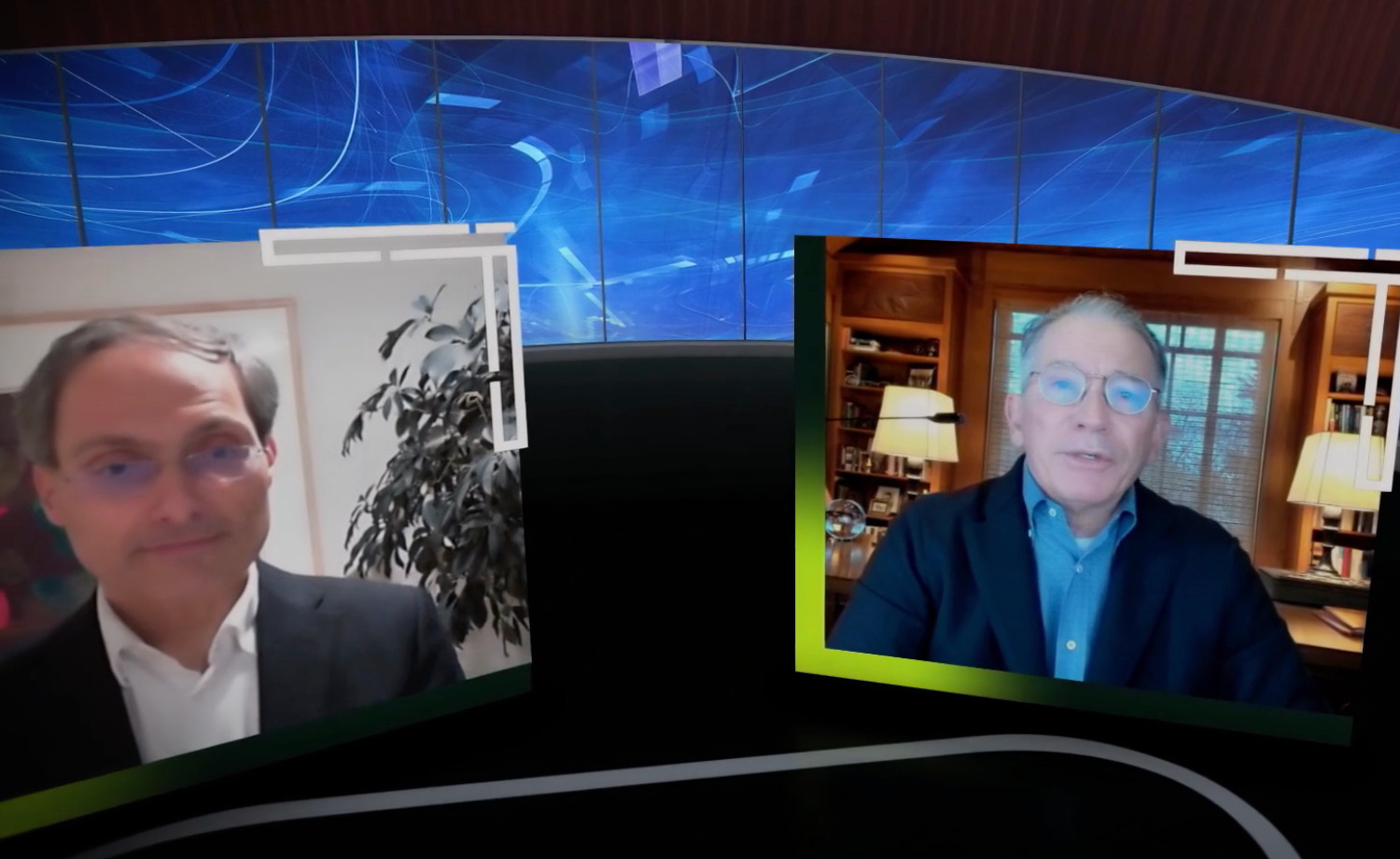Rethinking the acceleration of AI at scale
"You have to make sure that you’re focused on value, that you’re not just focused on the technology in itself." -Yuri Sebregts
How will digital technology and AI play a role in the energy transition at Shell?
For Shell, Mr. Sebregts said it includes doing three things: getting its own operations to net zero, reducing the energy intensity of its products, and helping its customers get to net zero themselves. He sees numerous ways in which digitalization is going to help get there. One big example is that, with the required mass shift to electrification, AI optimization will be a big part of optimizing the grid infrastructure.
What is C3 doing specifically in the energy space with AI?
Mr. Siebel gave a long list of areas where C3 AI is actively applying its technologies in the oil and gas sector, including AI-based predictive maintenance to avoid environmental hazard and increase safety, production optimization, refining hydrocarbon loss accounting, and distributed energy resource management for integration of renewables. The company is also very active with Smart Grid Analytics and infrastructure optimization for numerous electric utilities around the world.
He said they recently launched the second call for proposals from the C3 AI Digital Transformation Institute, partnering with Microsoft, Shell, and Baker Hughes as well as some of the world’s leading research institutions including MIT, Princeton, Carnegie Mellon University, Chicago University, Illinois University of California, Berkeley, and Stanford. It’s all about carbon sequestration, safe hydrocarbon production, advanced AI for energy and carbon markets.
How are, and how will advances in digital transformation technology impact Shell’s operations?
“We see already significant positive impacts in our operations,” said Mr. Sebregts, “We are well beyond the stage of just testing new things in Shell. We’re really in the in the ramp-up phase.” Regarding safety and environment, the number of robots that Shell has in field equipment with AI has gone from a few robots just two years ago, to now more than 100 cleaning and inspection robots going places they’d rather not send humans. They’ve completed over 1,200 drone flights for emissions monitoring. He said this is bringing Shell’s environmental footprint down because they can continuously monitor so much more equipment than before with people driving around. Asset reliability has also been a focus area for applying machine learning. A year ago, they had just a couple hundred machine learning models running. They now have 5,200 pieces of equipment continuously monitored through machine learning—and they’re adding 300 every week.
How does AI uptake and progress in the energy industry compare with other sectors?
Mr. Siebel said that the digital transformation phenomenon evolved over the last decade, starting with the electric utilities for grid analytics, and that oil and gas companies followed shortly thereafter. Those two areas still exhibit the most interest and the most progress. Other keen industries include financial services and banking, and telecommunications, manufacturing, and precision health.
“You know, about nine out of 10 of these companies that attempt digital transformation, and attempt these AI projects at large corporate scale—they fail.” He said the secret to succeeding is when it is led from the top—where the CEO takes charge and, it’s not an option, but a mandate.
How do you see Shell aligning digitalization acceleration with the various business priorities of your business units?
Mr. Sebregts agreed that strong leadership support, which he has at Shell, is a definite prerequisite. “Of course, you have to make sure that you’re focused on value, that you’re not just focused on the technology in itself.” In addition to driving value for customers, he said it’s very important to focus on getting the basics right, having really strong foundational platforms across the company, and making sure that the right talent is in place—so they can fully understand how it all works in the field, so they aren’t completely relying on outsourcing.
“Finally, I would point out that it’s really important to embrace the thinking that you have to adapt your work processes to what AI makes possible.” He said you don’t want AI to help you do the same thing faster. You want to really step back and be willing to change the core ways in which the work is done.
Perhaps you could comment on what the Open AI Energy Initiative is all about, and what motivated Shell to assume this important industry leadership position.
“We can develop a good number of solutions for ourselves to improve. But if we can unlock solutions across the industry, if we can unlock innovation and make that available on a much broader scale, we’ll see a huge acceleration.” Through the initiative, Mr. Sebregts sees a set of common standards for connecting innovations from different companies and making them interoperable. “That will stimulate the innovation, that will stimulate the take-up.”
With more and more concerns in society about ethical dilemmas in applying AI, what are your thoughts on that and how we move forward?
“I think that it is difficult to overstate the importance of ethical AI.” He said it’s an important issue, and an area in which governments need to regulate. “Like every new technology, there are going to be potentially significant, adverse social implications associated with AI. We need to anticipate what these are, and get ahead of them.”
“When we’re dealing with pumps, when we’re dealing with wells, real physical assets and processes…there’s simply not a lot of ethical problems here.” At its core, he said it’s simply about delivering higher productivity, lower cost, increased safety, and lower environmental hazard.
"The largest AI applications on Planet Earth are in the utility industry and in the oil and gas industry" -Thomas Siebel

